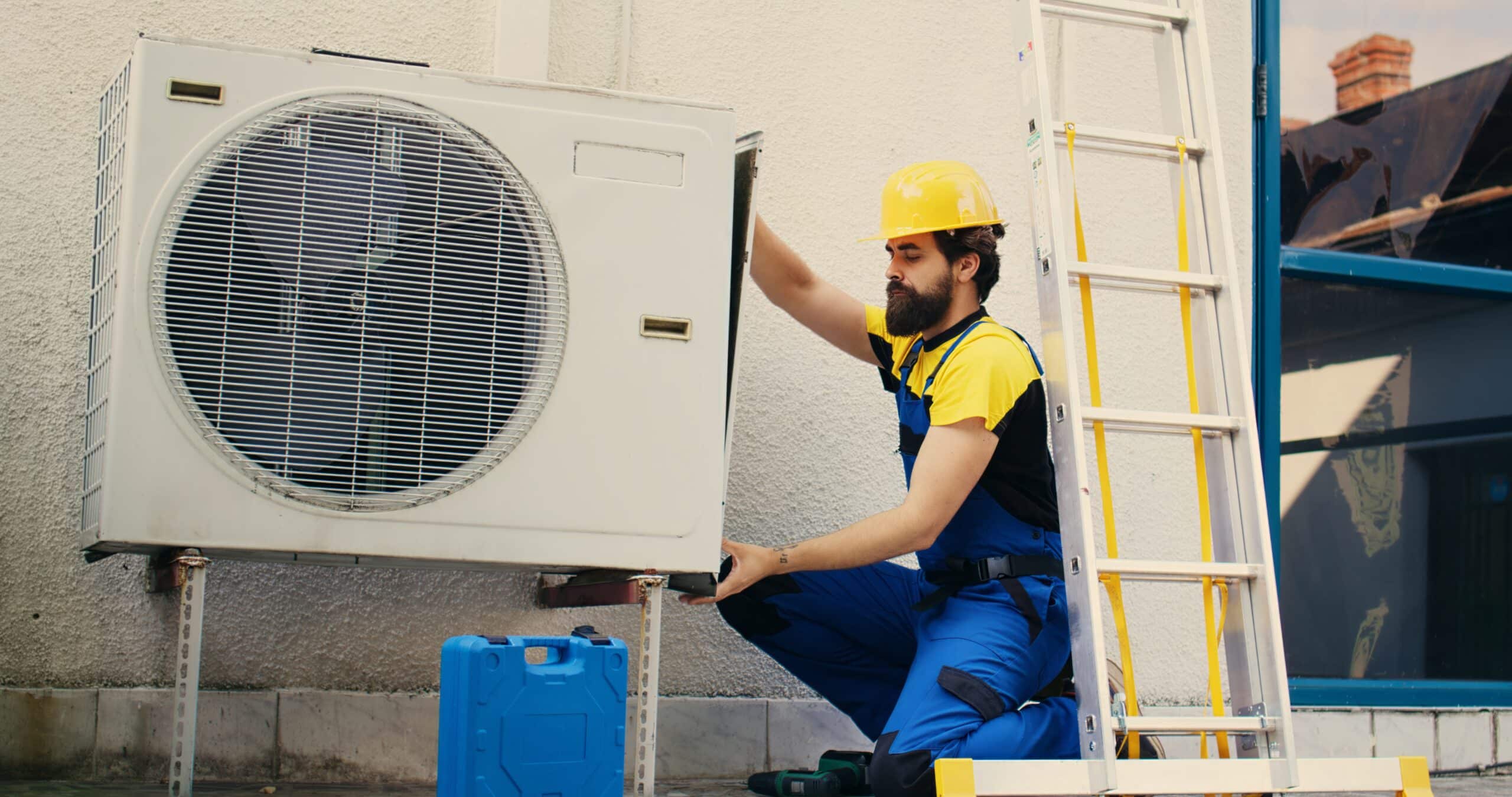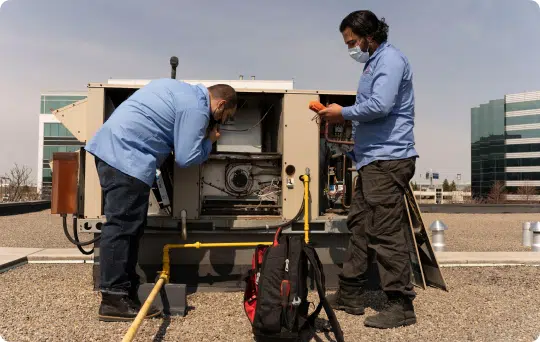Enhance Indoor Air Quality with DMAKS HVAC Expert Help.
Enhance Indoor Air Quality with DMAKS HVAC Expert Help.
Blog Article
How to Pick the Right Cooling And Heating System for Your Demands
Selecting the proper Heating and cooling system is a critical choice that requires mindful consideration of numerous elements. The myriad of system kinds available can complicate this procedure, leading one to question which path eventually leads to optimal convenience and efficiency.
Assess Your Home Dimension
Assessing your home dimension is a vital very first action in selecting the suitable heating and cooling system. The size of your home directly affects the home heating and air conditioning ability needed for reliable climate control. A cooling and heating system that is too little will certainly battle to maintain comfortable temperatures, bring about enhanced energy usage and use on the system. Conversely, an extra-large system can result in short biking, poor humidity control, and inefficient operation.
To accurately assess your home size, measure the square video footage of each room, thinking about variables such as ceiling elevation and the format. In addition, take into consideration the insulation top quality and the variety of home windows, as these components impact thermal efficiency. Residences with open flooring strategies might need different system configurations compared to those with numerous divided spaces.
Using the Handbook J tons computation technique can supply an extra exact price quote of your a/c needs. This method make up various variables, including neighborhood environment, solar gain, and tenancy patterns. By very carefully examining these elements, you can guarantee that your chosen cooling and heating system is properly sized, resulting in enhanced convenience, energy effectiveness, and durability of the devices.
Determine Your Budget Plan
Identifying your spending plan is a pivotal action in the heating and cooling system selection procedure, as it sets the criteria for your options - DMAKS HVAC. An a/c system is a considerable financial investment, and comprehending your financial limitations will certainly assist tighten down options that fit within your ways
Begin by assessing not only the first acquisition price yet also installation prices, which can differ considerably relying on the complexity of the project. Take into consideration continuous expenditures such as upkeep, repair services, and power intake. A system might show up affordable initially however can cause greater costs over time if it is less reliable.
It is recommended to allocate a contingency fund for unforeseen expenses that may occur throughout installation or preliminary system adjustments (DMAKS HVAC). In addition, discover financing alternatives or refunds that may be available, as these can relieve the worry of upfront costs
Inevitably, having a clear budget allows you to involve with cooling and heating specialists better, guaranteeing you get tailored suggestions that lines up with your financial objectives and home requirements. By being persistent concerning your budget plan, you can make informed choices that enhance convenience without jeopardizing economic stability.
Evaluate Power Effectiveness
Energy effectiveness plays an important duty in the overall efficiency and cost-effectiveness of your HVAC system. Look for systems with a high Seasonal Energy Performance Proportion (SEER) for cooling and a high Annual Gas Application Efficiency (AFUE) score for home heating.
In addition, consider the Energy Star accreditation, which indicates that the system meets strict performance standards established by the Environmental Protection Agency. Investing in a Power Star-rated cooling and heating system can lead to significant cost savings gradually, specifically in locations with severe temperature level variations.
Another factor to evaluate is the system's size and capacity. An oversized or undersized unit can result in ineffectiveness and enhanced energy expenses. DMAKS HVAC. Appropriate sizing, commonly figured out via a Hand-operated J lots estimation, makes sure that the system runs at ideal effectiveness


Consider Climate and Atmosphere
When picking a HVAC system, it is important to take into consideration the neighborhood environment and environmental conditions, as these aspects significantly influence the system's performance and performance. Various areas experience differing temperature level extremes, moisture degrees, and seasonal adjustments, every one of which impact official website heating and cooling down needs.

Additionally, regional ecological aspects, such as air high quality and prospective irritants, need to educate your choice. Solutions outfitted with advanced filtration innovations can help reduce toxins and offer cleaner air. In addition, think about the power resources offered in your location-- some heating and cooling systems are extra efficient when powered by all-natural gas or renewable energy resources.
Eventually, straightening your HVAC system choice with your neighborhood climate and environmental considerations will certainly lead to enhanced comfort, enhanced performance, and reduced web link energy costs.
Explore System Types and Attributes
As homeowners seek to enhance convenience and performance, exploring the various kinds of cooling and heating systems and their unique attributes becomes crucial. The key kinds of HVAC systems consist of air conditioning, heat pumps, ductless mini-split systems, and furnaces. Each system offers distinct advantages tailored to various requirements and preferences.
Central air systems give consistent cooling throughout a home, making them excellent for bigger rooms. Heatpump serve as both heating and cooling services, utilizing electrical power to transfer warm, which can result in lower power costs. Ductless mini-split systems are becoming increasingly prominent because of their flexibility and simplicity of installment, permitting house owners to control the temperature in specific spaces without comprehensive ductwork.

Conclusion
Finally, selecting the ideal a/c system necessitates cautious consideration of different variables, consisting of home dimension, budget restraints, energy efficiency, local climate, and available system types. A comprehensive assessment find of these elements makes sure ideal convenience and cost-effectiveness. By adhering to a structured approach, home owners can make enlightened decisions that straighten with their specific demands and choices, inevitably leading to boosted indoor air quality and power financial savings.
Report this page